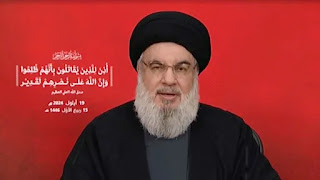Monday, January 22, 2024
Title: The Role of Madrasas in Educational and Cultural Development
Introduction:
Madrasas, or Islamic educational institutions, have played a significant role in shaping the intellectual and cultural landscape of many societies. These institutions have a rich history, dating back centuries, and have been instrumental in imparting religious education, fostering moral values, and contributing to the overall development of individuals. In this essay, we will explore the importance of madrasas in our society, examining their role in education, cultural preservation, and community development.
Education in Madrasas:
One of the primary functions of madrasas is to provide religious education to students. The curriculum typically includes the study of the Quran, Hadith (sayings and actions of Prophet Muhammad), Fiqh (Islamic jurisprudence), and other Islamic sciences. This foundational knowledge equips students with a strong understanding of their faith and helps cultivate a sense of morality and ethical conduct.
While madrasas are known for their emphasis on Islamic studies, many modern madrasas also integrate general education subjects into their curriculum. This approach aims to ensure that students receive a well-rounded education that prepares them for both religious and worldly matters. The incorporation of subjects such as mathematics, science, and language arts helps students develop critical thinking skills and a broader perspective on various academic disciplines.
Cultural Preservation:
Madrasas are not only centers of religious learning but also serve as repositories of cultural heritage. Through the teaching of classical Arabic and the study of Islamic history, madrasas contribute to the preservation of linguistic and cultural traditions. The emphasis on memorization and recitation of the Quran fosters a deep connection to the Arabic language and its literary significance.
Moreover, madrasas often become hubs for the dissemination of traditional arts, calligraphy, and Islamic architecture. This cultural enrichment helps create an environment where students not only excel in their religious studies but also develop an appreciation for the rich cultural tapestry of Islam.
Community Development:
Madrasas play a vital role in community development by nurturing responsible and morally upright individuals. The emphasis on ethical conduct, humility, and social responsibility helps mold students into conscientious members of society. Many madrasas also engage in community outreach programs, providing educational services, healthcare initiatives, and support for the less fortunate.
Furthermore, madrasas contribute to the development of leadership skills among their students. Many prominent leaders, scholars, and educators have emerged from madrasa backgrounds, demonstrating the positive impact of these institutions on the broader community.
Conclusion:
In conclusion, madrasas are integral to the educational and cultural fabric of our society. While they have traditionally focused on religious education, modern madrasas have evolved to provide a comprehensive education that combines both religious and secular knowledge. By preserving cultural heritage, fostering community development, and producing well-rounded individuals, madrasas continue to be valuable contributors to the progress and enrichment of our society.
Subscribe to:
Post Comments (Atom)
Israel killed Hezbollah leader Hassan Nasrallah in Beirut strike, group confirms
Hezbollah leader Sayyed Hassan Nasrallah gives a televised address on September 19, 2024, in this screenshot taken from a video. Al-Manar T...

-
It's the southernmost post of exit from Gaza and borders Egypt's Sinai peninsula. There are only two other border crossings from an...
-
Freelancing is a form of self-employment where individuals offer their skills and services to clients or businesses on a project-by-proje...
-
E-commerce, short for electronic commerce, refers to the buying and selling of goods and services over the internet. It has become a si...


No comments:
Post a Comment